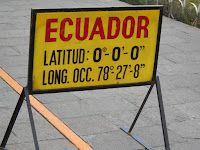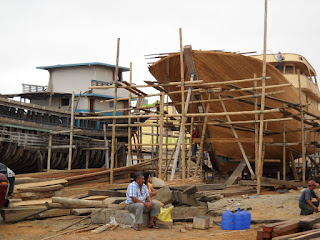While he was improving his own business, Juan Carlos had a desire to help his fellow cevichocho vendors. Together with 45 peers he formed an association complete with a uniform and plans to petition the government to allow cevichocho vendors to sell on the streets. Knowing that his business training had helped him set goals and improve his work, Juan Carlos also began teaching the lessons he received through classes at Partners for Christian Development (PCD) to the rest of the association. After three classes, he asked the PCD administrative assistant, Edwin, to help him lead the classes. In this way, the impact of business training is being multiplied, and once-isolated cevichocho vendors are now united, seeking to improve their services, legalize their informal businesses, and save enough to also establish their own storefront restaurants.
On a Wednesday afternoon, Edwin and I stopped in to check on Juan Carlos, plan the last class of the business course, and enjoy some authentic cevichochos. Just inside the doorway stands the street cart that used to be the entirety of Juan Carlos' business. Now the cart is accompanied by a stove where his assistant prepares typical fried pork and a display case filled with beverages and tuna, which can turn a roadside snack of cevichochos into a sit-down meal. As we conversed with Juan Carlos, he shared that the association had started a savings fund and already was giving out its first loan to improve another cevichocho business. Not only has he improved his own business, but Juan Carlos is also inspiring others to do the same. Furthermore, he is not finished receiving training. Juan Carlos recently enrolled in night classes so that he can finally achieve his high school diploma.





















